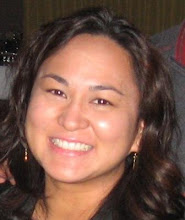Questions can be as powerful as we want them to be. As a coach, I use questions with my clients all the time. People often ask me if I "coach myself," and the answer is absolutely YES! Coaches are generally an inquisitive bunch, but more than being able to ask the right questions is listening for a person's true answers.
We all have the ability to coach ourselves a little bit. Oftentimes, that means asking things that challenge our thinking or beliefs about ourselves and others. It's the answers to these questions that are most instrumental in propelling us "to the next level" (a phrase that doesn't really sit well with me, but I use because others relate to it more easily) and in helping us grow (Ahh, that phrase feels so much better.).
The whole industry of Quality Control came about from asking questions. In fact,
"The Five-Why Process" for root-cause analysis is a process of literally asking a new and difficult "Why?"-question about a specific problem, five times. The premise is that by peeling away symptoms of a problem, layer-by-layer, we ultimately get to ask the question that reveals the true cause of a problem - or at least gets us a little closer. While this process was developed by Sakichi Toyoda and later utilized by the Toyota Motor Corporation, and more recently by Kaizen, lean manufacturing, and Six Sigma - all quality and efficiency improvement programs, we can use The Five-Why Process as a place to start in improving our personal lives, but it's definitely JUST A STARTING POINT.
Let's look at an example - and where it falls flat.
The Problem: "I never get asked out on dates." (A woman)
1. Why do I never get asked out on dates? "Because guys aren't attracted to me, I guess."
2. Why are guys not attracted to me? "Because I'm not 'girly.'"
3. Why am I not 'girly'? "Because I'm not emotional."
4. Why am I not emotional? "Because I do things based on evidence, not emotion."
5. Why do I do things based on evidence? "Because I'm a loser, alright!!"
HUH????
Every time I use this on myself, I don't get very far with it. I actually get very guilty by the end of it. I think that I've asked the wrong questions, and I feel farther from and more frustrated about getting an answer to my dilemma. And besides, "why" is such a guilt-loaded question, terribly reminiscent of childhood scoldings and discipline. It makes me sound like I'm screwed up and hopeless. Blech.
So my twist on The Five-Why Process is to love whatever reasons you do what you do. The Five-Why Process can give us insights into some of the things we might consider changing in our lives, but it doesn't necessarily give us the means and encouragement to do it. At the end of each statement about yourself, add "...and I LOVE IT!" (or similar). If writing, use CAPITAL LETTERS! If doing this aloud, be sure to state I LOVE IT with absolute ENTHUSIASM - whether you mean it or not. (By the time you answer Why #5, you will!)
Let's look at the example again - with my special twist.
The Problem: "I never get asked out on dates." (A woman)
1. Why do I never get asked out on dates? "Because guys aren't attracted to me, I guess."
2. Why are guys not attracted to me? "Because I'm not 'girly' - and I LOVE IT!"
3. Why am I not 'girly'? "Because I'm not emotional - and I LOVE IT!"
4. Why am I not emotional? "Because I decide based on evidence, not emotion - and I LOVE IT!"
5. Why do I decide based on evidence? "Because I do, and I LOVE IT!"
More love, more joy, more happiness - these are all the improvements we're looking for in our personal lives. And while life is a process of continual learning, WE are not manufacturing life. Love, joy, and happiness are not manufactured products, and that's why The Five-Why Process is only going to get me so far in my personal life.
We must have to ask ourselves something more, but first, we have to WANT to find the true answers. More on asking questions, in future posts.
All the best,
- Janice
Soulmate from Within
"Bringing you closer to yourself - and the love you were made for."




